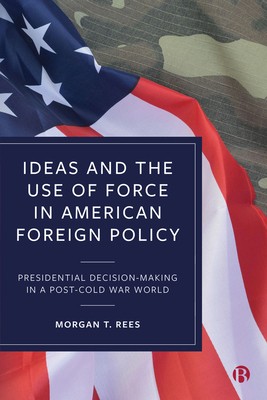
- We will send in 10–14 business days.
- Author: Morgan T Rees
- Publisher: Bristol University Press
- ISBN-10: 1529215900
- ISBN-13: 9781529215908
- Format: 15.8 x 23.6 x 2.3 cm, hardcover
- Language: English
- SAVE -10% with code: EXTRA
Ideas and the Use of Force in American Foreign Policy (e-book) (used book) | bookbook.eu
Reviews
Description
The decision to mount an armed foreign intervention is one of the most consequential that a US president can take. This book sets out to explain why and when presidents choose to use force. The book examines decisions to use force throughout the post-Cold War period, via flashpoints including the Balkans, the 'War on Terror' and the Middle East. It develops new explanations for variation in the use of force in US foreign policy by theorizing and demonstrating the effects of the displacement and repression of ideas within and across different US presidential administrations, from George H.W. Bush to Donald Trump. For students, scholars and anyone with an interest in international relations and global security, this book is an original perspective on a defining issue of recent decades.
EXTRA 10 % discount with code: EXTRA
The promotion ends in 17d.19:17:44
The discount code is valid when purchasing from 10 €. Discounts do not stack.
- Author: Morgan T Rees
- Publisher: Bristol University Press
- ISBN-10: 1529215900
- ISBN-13: 9781529215908
- Format: 15.8 x 23.6 x 2.3 cm, hardcover
- Language: English English
The decision to mount an armed foreign intervention is one of the most consequential that a US president can take. This book sets out to explain why and when presidents choose to use force. The book examines decisions to use force throughout the post-Cold War period, via flashpoints including the Balkans, the 'War on Terror' and the Middle East. It develops new explanations for variation in the use of force in US foreign policy by theorizing and demonstrating the effects of the displacement and repression of ideas within and across different US presidential administrations, from George H.W. Bush to Donald Trump. For students, scholars and anyone with an interest in international relations and global security, this book is an original perspective on a defining issue of recent decades.


Reviews